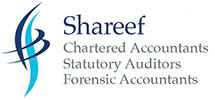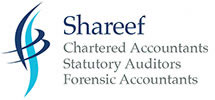HMRC doubles up on SEISS tax
HMRC’s latest guidance on Self-Employment Income Support Scheme (SEISS) payments warns that some taxpayers may be taxed on them twice. What steps are required to prevent this?

HMRC says that many of the 2020/21 self-assessment tax returns it’s received either include entries for SEISS payments that don’t match the figures it has on record or show nothing at all. As a result, it’s automatically amending those returns and sending out corrected tax calculations.
Taxpayers should of course check HMRC’s amended figures to make sure they reflect only the total of the first, second or third SEISS grants received on or before 5 April 2021. But that’s not all. They should also check that theyreported the SEISS payments in the right box on the tax return. HMRC’s latest guidance instructs where the payments should be shown.
If figures have been entered in the wrong place HMRC will assume the taxpayer hasn’t declared the payments at all. It will automatically add them which will result in the individual being taxed twice on the SEISS payments. To avoid this double taxation, an amended tax return should be submitted, reporting the SEISS figures in the right place and removing them from the part of the tax return where they were originally included.
Related Topics
-
Who can't yet sign up for MTD IT?
Making Tax Digital for Income Tax (MTD IT) becomes mandatory from April 2026 for sole traders and landlords with qualifying income over £50,000. However, HMRC’s current guidance makes clear that not everyone can sign up yet. If you are preparing early, are you actually eligible?
-
Pay self-assessment tax
-
MONTHLY FOCUS - PROFIT EXTRACTION PLANNING AHEAD OF 5 APRIL 2026
The end of the 2025/26 tax year is fast approaching. In this Monthly Focus we look at ways to get money out of your company tax efficiently, and consider whether limited is still the way to go for your business.



 This website uses both its own and third-party cookies to analyze our services and navigation on our website in order to improve its contents (analytical purposes: measure visits and sources of web traffic). The legal basis is the consent of the user, except in the case of basic cookies, which are essential to navigate this website.
This website uses both its own and third-party cookies to analyze our services and navigation on our website in order to improve its contents (analytical purposes: measure visits and sources of web traffic). The legal basis is the consent of the user, except in the case of basic cookies, which are essential to navigate this website.